Review: Audio Imperia Areia Cinematic Ensemble Strings
Cinematic sampling supremo Audio Imperia has welcomed a mythological new member to its family. But is Areia truly worthy of worship?
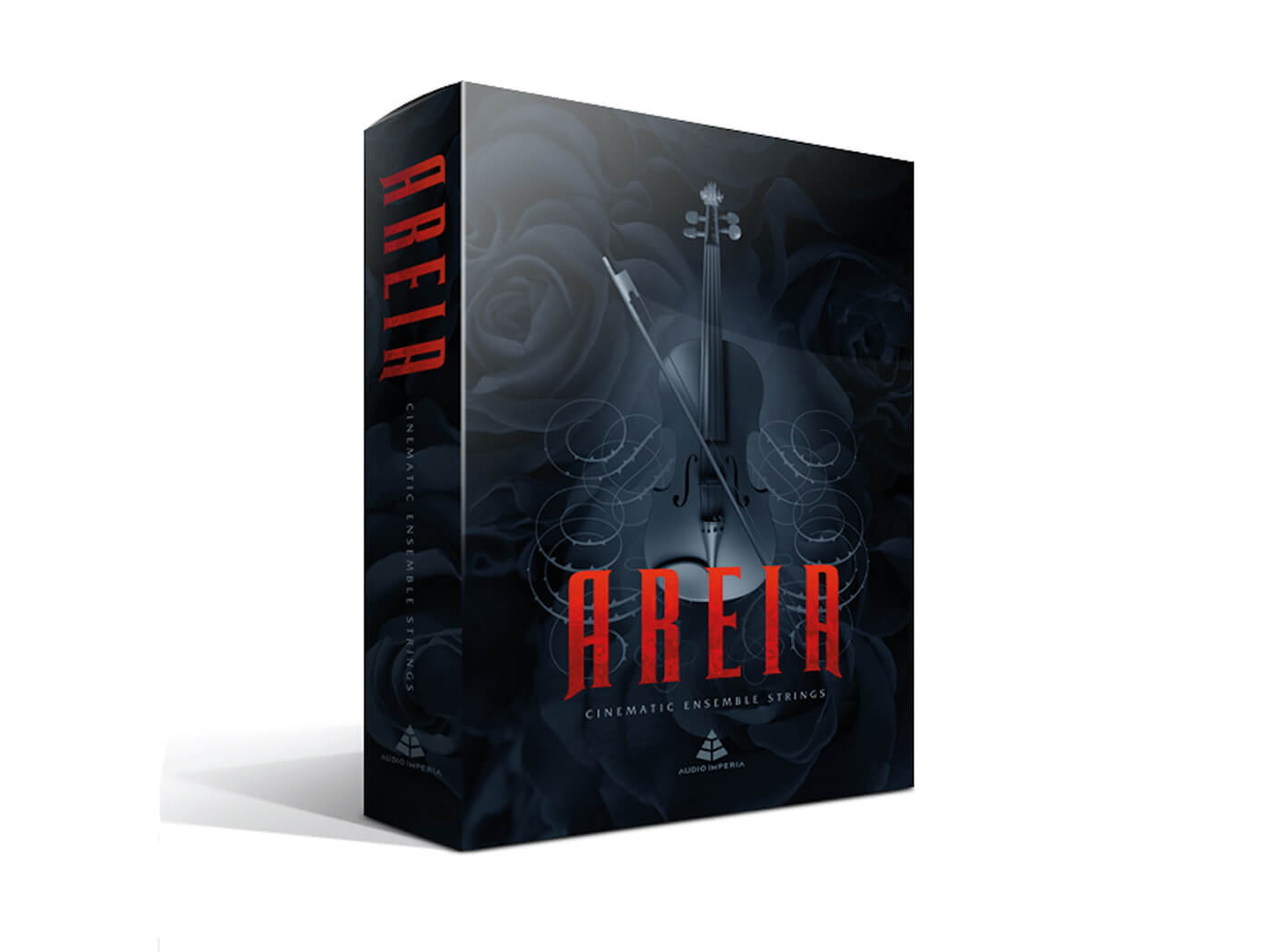

Price £300
Contact Audio Imperia
Every announcement that comes out of San Diego’s Audio Imperia seems to generate buzz, and with good reason. We’re big fans of its Jaeger and Nucleus orchestral packages but, beyond its sensational cinematic-inspired instrumental samples, it’s the inclusion of sound-design gems that make Audio Imperia’s products really impressive.
Myth and legend
In a change of tack from the company’s complete orchestral suites, Areia’s focus is solely on the string section, with a comprehensive collection of samples, mixes and articulations. Its generous 68GB of samples makes Areia Audio Imperia’s largest offering to date, and underlines the depth and range of the sampling sessions, which were undertaken by Czech Republic-based Capellen Music Production.
Despite the European setting, Areia boasts a truly Hollywood sound, with plenty of colouration available via the clean and intuitive interface. Via its basic and advanced tabs, you can control how many control elements are displayed, making the interface more manageable. In basic mode, you can switch between two striking mix settings: Classic and Modern. Classic mode yields European colours and a neutral mix extracted from the raw session recordings. The Modern mix, meanwhile, features subtle processing for a brighter and more appropriately cinematic sound. Both have their virtues. Your choice will depend on the musical leanings of the cues you’re working with. With both, you can employ a see-saw fader to find your ideal blend between close and ambient mic’ing.
For more control, the advanced tab opens a more comprehensive mixer with four mic channels, from close and Decca tree mic’ing to wide and ambient signals. As sample capture was undertaken in the drier environment of a soundstage, the distant mic signals never feel overly reverberant and chime with the cinematic ethos of the package. There’s additional reverb onboard, with Areia making use of Kontakt’s excellent algorithmic reverb. Generous hall and room-based reverbs are available should the dryness prove too exaggerated for your mix.
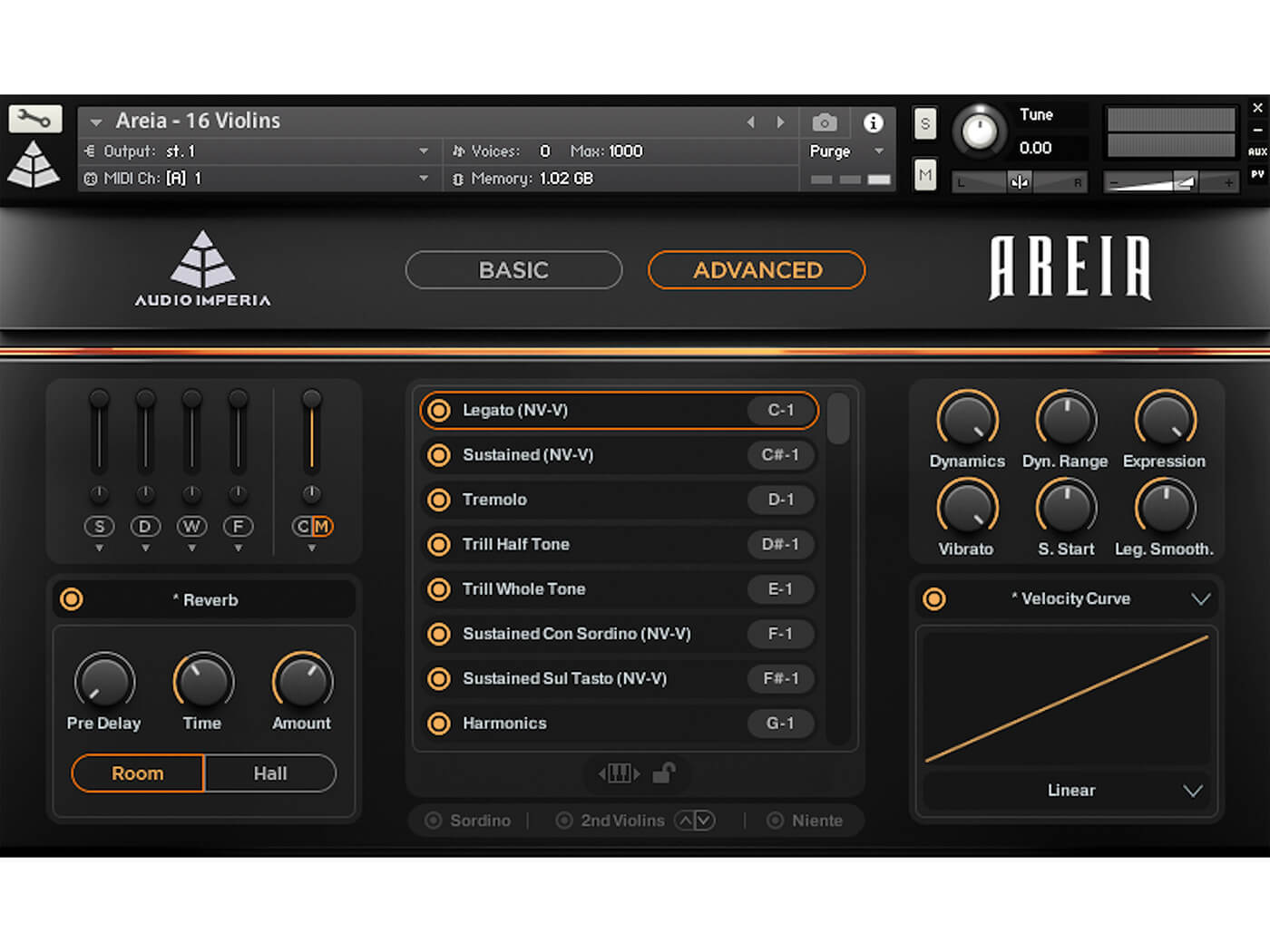
En masse
Instruments are organised into their respective sections of 16 violins, 10 violas, six cellos and four double basses. There is no split between first and second violins, leaving it down to you to organise the panning if required. In turn, the instruments are organised into four menus. The first two are multiple or single articulation. Loading the multi-articulation violin patch swallows up more than 1GB of RAM, which feels fair given the content. This example is based on the use of the mix-ready basic setting, while switching to the more bespoke mic-mixer option in advanced mode will use more RAM with the addition of each channel.
We find the basic stereo mix, with its ability to blend close and distant mic’ing, extremely effective. Using the onboard reverb places no excess on the RAM allocation either, which is handy if you’re tight on memory headroom and need greater ambience.
As is typical with Audio Imperia’s sample preparation, triggering can initially seem delayed but this is by design. The sample-start function allows users to dictate exactly how swiftly they want their samples to trigger, which does away with any requirement to add or subtract DAW-based delay in order to get your timings to gel.
In the advanced setting, the triggering is clean, with the crisp presence of the pre-defined cinematic mix. This can feel overbearing in isolation but when placed in a mix the performance is spirited and concise.
Where Areia offers real enhancements over Audio Imperia’s other fully-packaged products is with its wealth of articulations. Many of these are new to the Audio Imperia line-up, and it’s undoubtedly helpful to have all these articulations in one place.
The true legato patching caters for most settings brilliantly. While it can handle slow-moving expressive lines the same way many other packages can, its ability to switch seamlessly to more agitated and fast-moving legato makes it fantastically flexible. Apart from the usual volume, dynamic and vibrato control, handled via MIDI CC, Areia also has a polyphonic legato mode, implemented using note velocity as the indicator for each line’s movement. In this mode, velocity is switched to a utility mode. Though this can be difficult to control while playing, the ability to edit each line onscreen makes light work of intertwining lines.
It’s possible to use this facility with up to four notes too, so you can get sustain and suspensions across chords. It’s a shame that there is no panning control at this stage but panning does take effect if the same process is applied to one of the ensemble patches.
Alongside the vast articulation options, which extend from sustains and marcato to spiccato and pizzicato, there are also trill and tremolo options, the latter using an onscreen triggering tool to place accents on a grid to implement accented patterns.
Areia also comes equipped with time-saving performance patches designed to help users to get their ideas down quickly. There are pre-orchestrated options, as well as a pre-configuration of articulations with crisp front and backend sustain. It’s the best of both worlds in a single but effective patch. The full-ensemble setting allows capable keyboard players to quickly sketch out ideas without having to load multiple patches.
The final tutti
Areia is another surefire win from Audio Imperia. The package plasters over any perceived absences in articulation with power and flexibility. It’s an excellent standalone package for just about anyone who requires access to comprehensive strings.
But what about those sound-design gems we mentioned earlier? These additions have become a trademark of Audio Imperia, and Areia follows suit superbly. The Sound Design menu provides some amazingly luscious pads derived from conventional strings, and are a brilliant backdrop to the more conventional acoustic content.
This is an easy-to-use suite that makes for fast results despite being able to go deep thanks to its polyphonic and mic-channel modes. The clean GUI is a pleasure to operate too. With so much valuable and consistent content here, don’t be surprised if you begin reaching for Areia ahead of your other string suites. Worthy of praise? We’d say so.
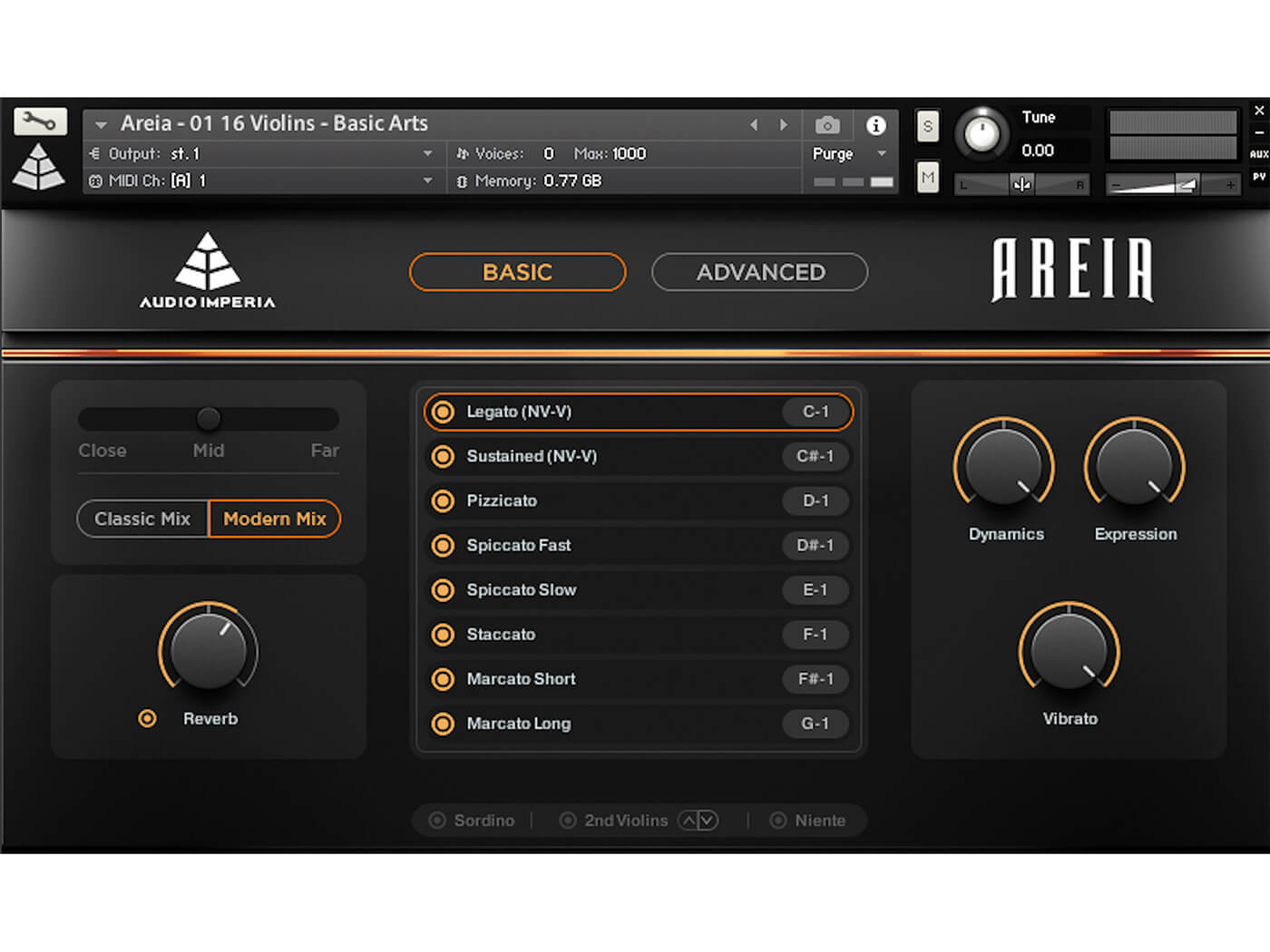
Do I really need this?
Anyone considering purchasing a major sample suite will have a checklist to oversee. Areia is likely to tick plenty of your boxes. If you need high-quality articulations, you’ll find that it has all the obvious patches covered, along with lots of lesser-used articulations that might prove life-saving on the rare occasion you require them.
It features fine legato too, and you can control the swiftness of the triggering, making it easy to implement sounds in your tracks. Its four mic signals and mix settings, which are radically different in tonal colour but both valuable within their respective settings, makes this package fabulously flexible too. If you have other Audio Imperia packages, this will compliment them nicely. But if you’re looking for your first string suite and want a variety of user options, it’s likely to impress just as much.
Key features
- Complete string ensemble library
- Hollywood sound, from the delicate to the aggressive
- Extensive articulations, including true legato
- Patches range from single sections to full ensemble
- Four mic positions alongside two curated mixes
- Conforms to Native Instruments library format (NKS Compatible)
- Requires Kontakt 6.2.2+ (free player or full version)
- 68GB disk space require
Alternatives
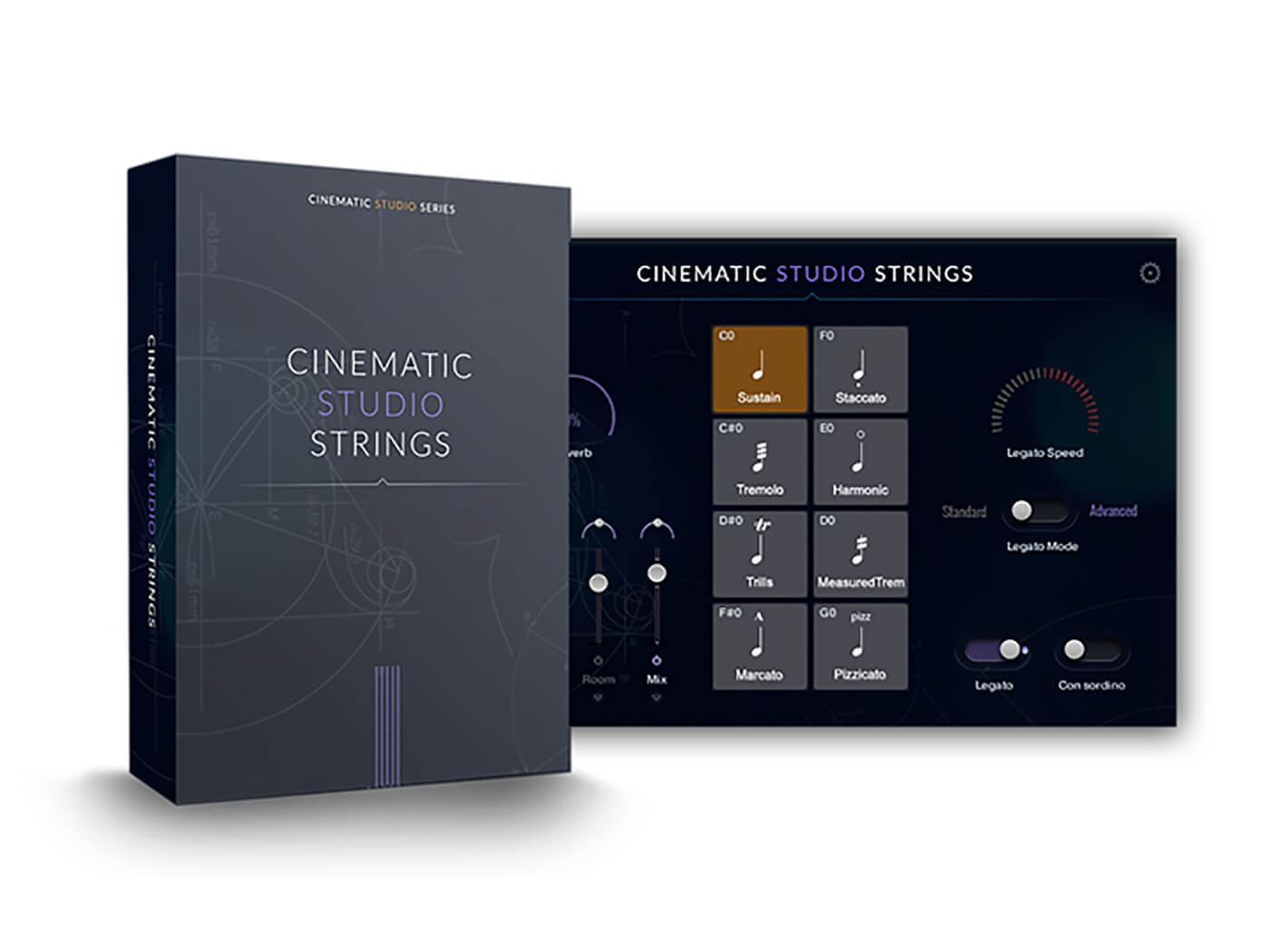
Cinematic Studio Series
Cinematic Studio Strings £300
Recorded on a soundstage, CSS offers a comprehensive suite of great-sounding strings that are darker in timbral colour than that of Areia. It has an intuitive interface too, with a legato mode that reacts to the user’s playing in an intelligent way.
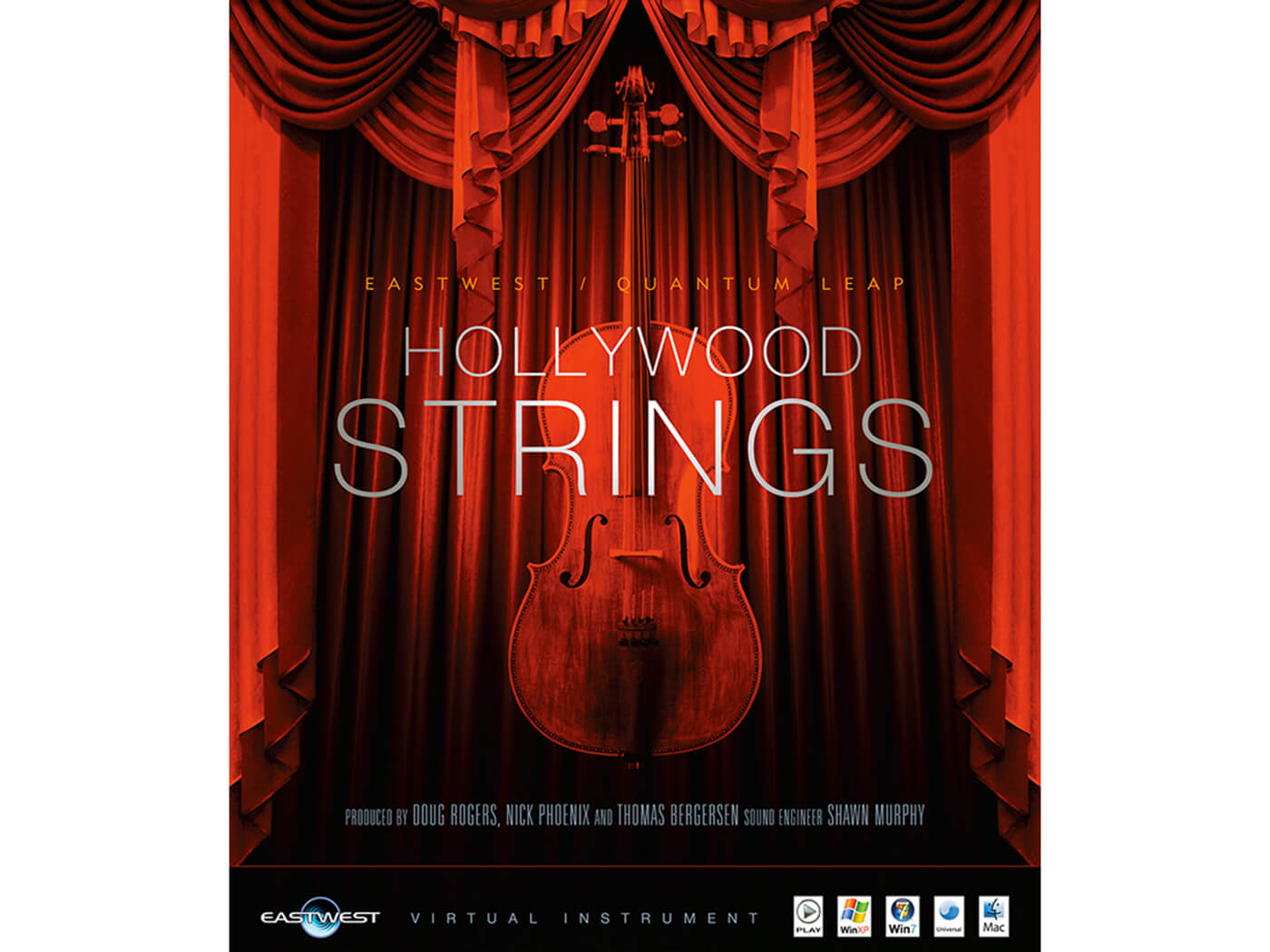
EastWest
Hollywood Strings £200
Another soundstage-recorded classic, Hollywood Strings boasts a brighter timbral quality in line with the cinematic scoring for which it’s designed. It relies on EastWest’s Play plug-in and is available to rent as part of the ComposerCloud, as well as to buy.